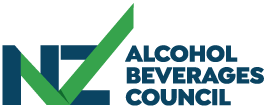A just released survey confirms most of us agree when it comes to reducing harmful drinking – target the harmful drinker, use stiffer penalties and implement education programmes.
The annual survey 1 by the NZ Alcohol Beverages Council aims to understand New Zealanders views on how alcohol is perceived across a number of issues. One question asked what respondents thought would be most effective at reducing harmful alcohol consumption.
“At the top of the list was targeted support programmes for harmful drinkers with a net support of 88% – up 7% on last year,” says NZABC Deputy Chair, Robert Brewer.
“We don’t find this surprising because most of us would agree that targeting where the harm is makes complete sense,” says Robert.
The next most called for intervention was to confiscate cars from repeat drink drivers (net favourability rating of 82% – up 5% from last year) followed by using alcohol education programmes in schools with a favourability rating of 76% – down 2% from last year.
“Again, no surprises here. Even though drink driving convictions have fallen significantly, from 23,346 in 2012/13 to 13,046 in 2021/22 people want to see targeted reduction measures and I think we’d all agree that more school education programmes would be effective,” Robert says.
The top six reduction measures are:
- Targeted support programmes for harmful drinkers +88% (+7%)
- Confiscating cars from repeat drink drivers +82% (+5%)
- Alcohol education programmes in schools +76% (-2%)
- Use alcohol interlocks in cars to reduce drink driving +65% (+11%)
- Heavier fines for drunk and disorderly behaviour +62% (+5%)
- Allow Police to issue spot fines for minor alcohol related offences +52% (+5%)
“The general theme from this list is a call for stronger and more direct interventions including more support – directly and through schools. But at the end of the day, we all need to take responsibility for the way we drink this Christmas and drink socially, responsibly and plan ahead. So if you do choose to drink, plan to have a designated driver or just don’t drive after socialising,” says Robert.
